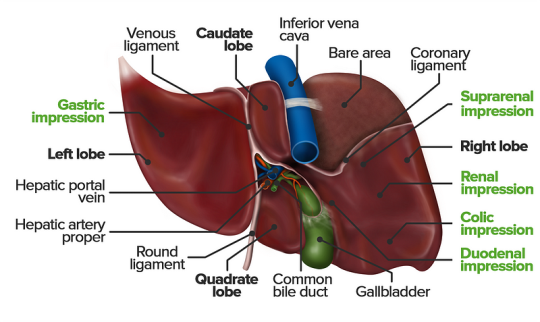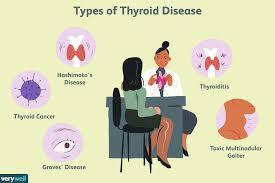#autoimmune thyroid conditions
Explore tagged Tumblr posts
Text
Nourishing Your Thyroid: A Comprehensive Guide to Optimizing Your Diet for Thyroid Health
The thyroid, a small but mighty gland nestled in your neck, plays a pivotal role in orchestrating your body’s symphony of functions. From regulating your metabolism and energy levels to influencing your mood and body temperature, this butterfly-shaped powerhouse impacts nearly every aspect of your well-being. When your thyroid isn’t functioning optimally, it can lead to a cascade of health…
#autoimmune thyroid conditions#Hashimoto&039;s thyroiditis#hypothyroidism#thyroid diet#thyroid health#thyroid-friendly foods
0 notes
Text

what do I say when it will never get better
#chronically ill artist#comorbidities#comorbid conditions#chronically ill#chronic illness#chronic fatigue#autoimmine disease#autoimmune#potsawareness#potsie#pots#pots syndrome#hashimotos#hashimotos disease#hypothyroidism#thyroid#illustrator#illustration#illustrative art#queer artist#fine art#original art#traditional art#my art#artwork#artists on tumblr#ohuhuart#ohuhualcoholmarkers#ohuhumarkers#ohuhubrushmarkers
18 notes
·
View notes
Text
actually autoimmune diseases are super social so you should really consider keeping them in pairs
#els.txt#i saw a tag on one of my posts that said 'yknow since autoimmune conditions have the tendency to get Fucking Lonely'#and i thought a) that was so fucking funny and b) its so true#you can't JUST have lupus you have to give lupus a friend#i can't JUST have arthritis i have to have thyroiditis too
11 notes
·
View notes
Text
The great thing about chronic illness in the winter is I don’t know which contortion is causing the fatigue but I sure am passing the fuck out the minute I sit down. And one or all of them causes cold intolerance, so like. I’m suffering in seasonal hell. (Tho like the cold intolerance has had me in shambles since it was 100F+ / 37C+ outside because I work in an air conditioned building. Truly cannot win!!!)
I am in a fight with this flesh prison that barely knows how to keep itself alive, the body is a curse and I live to spite it.
#between the autoimmune disorder and the heart condition and the food allergies and the depression#it’s just a toss up what is making my day hell#also everything is inflammatory so if one flares up I’m fucked#this is only mildly bitching if you were speaking you would hear me also laugh bc like what else am I gonna do#I’m stuck in this poorly designed flesh suit!#alas!!!#it’s so bad at remaining alive#as much as it is annoying as fuck to be passing out#I’m sure it is also extremely comical to catch me fast asleep while sitting upright like a#old man#I am an old man at heart and my thyroid don’t work#let me rest
1 note
·
View note
Text
Research on Autoimmune Diseases

What exactly are autoimmune diseases?
Have you ever thought of a situation where our body becomes our enemy? Autoimmune diseases refer to a condition in which our immune system tends to destroy our healthy tissue due to an abnormal mechanism called autoimmunity. It is a chronic lifelong condition, and millions of people across the globe are living with it. Most of the time, autoimmune disorders are abrupt in onset, regardless of age, and females are more likely to develop than men. There are more than 80 autoimmune diseases that affect millions of people across the globe. It includes rheumatoid arthritis, Grave’s disease, Hashimoto’s thyroiditis, systemic lupus erythematosus (SLE), antiphospholipid syndrome, psoriasis, multiple sclerosis, coeliac disease, inflammatory bowel disease (IBD), Sjogren’s syndrome, and many more.
Strengthen Research on Biospecimens of Autoimmune Diseases
The growing incidence and prevalence of autoimmune disorders called for the immediate attention of global research to discover novel treatments and prevent autoimmune diseases. Today, medical science has endless possibilities. As far as immunology research is concerned, a lack of a clear understanding of the causes and exact pathway of autoimmunity is the main roadblock to discovering a permanent cure for autoimmune conditions. Against this background, it is of paramount importance to utilize the banked human biospecimens, such as serum, plasma, tissue, and PBMC, isolated from patients with autoimmune diseases. A well preserved, richly annotated human biospecimen can act as in-vitro patient models to intensify more studies on autoimmune disorders. Therefore, powering human biospecimens to foster research can uncover the secret behind autoimmunity and discover disease-specific autoimmune disease treatments.
The largest collection of Autoimmune Disease samples. Order online.
Today, research on human biospecimens has immense possibilities. Therefore, the demand for best-quality reliable human biospecimens is rising exponentially. Understanding the limitless possibilities of human specimen research, Central BioHub unveils a meticulous collection of autoimmune disease samples exclusively for drug and diagnostic research. It provides samples that are ethically obtained from autoimmune disease patients diagnosed with rheumatoid arthritis, inflammatory bowel disease, systemic lupus erythematosus, myasthenia gravis, antiphospholipid syndrome, Grave's disease, Hashimoto's disease, Sjögren's syndrome, etc. Being a marketplace for human biospecimens, all samples are in-stock and readily available for purchase, reservation or quotation. Central BioHub offers human serum samples tested for antinuclear antibodies (ANA), antineutrophil cytoplasmic antibodies (ANCA), antibodies to double-stranded deoxyribonucleic acid (anti-dsDNA), Rheumatoid factor (RF) and more parameters. To find out more about the samples and the ordering process, click here: https://centralbiohub.de/biospecimens/autoimmune-diseases
Central BioHub is eager to provide top-notch human biospecimens with the fastest global delivery. Pave your path to a moon shoot discovery in autoimmune disease research. Let’s start with Central BioHub today.
#autoimmune diseases#prevent autoimmune diseases#Hashimoto’s thyroiditis#autoimmune disease treatment#autoimmune conditions#SLE
0 notes
Text
So, I’m not proud of it, but I’m back to ask for help again. Above is the link to my Ko-Fi account; I can accept donations via Stripe and Paypal; I don’t have a preference of which method you use. Below is a more detailed explanation of the events that have led to my current predicament; it’s not entirely necessary to understand, but it should make sense of why this happened to me.
I’m dealing with some health problems and a recent car accident and I need help paying my bills for the next few months while I use that time to finish incomplete coursework for classes I took last year. In case it’s not clear, an “Incomplete” is a grade that can be given by instructors at some schools in situations where a student wasn’t able to complete a major assignment for a class due to circumstances outside their control, and allows students a pre-determined amount of time to finish that work beyond the end of the course. I had a plan for covering my expenses with a summer job at the Oregon State University Arthropod Collection (OSAC) while I finished the incomplete work, but the nature of my health issues, an outbreak of fleas, and a car accident have all prevented me from making it work. Now I’m kind of trapped; the cost of living in Corvallis is too high for food stamps to last an entire month, I don’t have a car anymore, and I’ll probably end up homeless if I can’t pay October rent and also pay November rent on time. I’ve managed to find some work doing landscaping and yardwork in my neighborhood, but I’ve realized that it’s impossible to make enough money and also handle the incomplete coursework; focusing on the former will impact the completion of my degree in June, while focusing on the latter will likely result in homelessness. The loss of my car is exacerbating all of this, in part because I live further away from all of the stores/banks/etc. in Corvallis, and public transit here is not very good.
Since late 2022, I’ve been experiencing sleep apnea-like health problems arising from swollen turbinate glands. I have some known allergies, but they’ve never caused swollen turbinate glands. The impact on my sleep quality became so severe that I had to resort to nasal strips every night. I saw doctors about this problem as early as spring of 2022, but none of them were helpful; most of them didn’t listen to me, and none of them considered trying any kind of testing. This ineptitude continued even after directly asking my primary doctor about autoimmune conditions and how we could test for them. Despite how obviously informative blood samples can be, nobody suggested a blood test. I finally lost my patience and demanded they give me a blood test for hypothyroidism at the end of August. Lo and behold, my thyroid hormone levels were an order of magnitude out of the normal range. Autoimmune problems run in my mother’s family, and it’s likely that I have Hashimoto’s thyroiditis; this disease is rarer in men, and the symptoms appear very gradually. While I can understand how this would delay detection of the disease, there were FIVE different doctors who saw me in relation to the sleep/allergy problems and none of them considered a blood test. I started taking levothyroxine the same day as the test results, but before being treated, my symptoms became so severe that my ADHD medication stopped working, my OCD symptoms went out of control, and I was experiencing severe brain fog. This is what forced me to request incomplete grades for my courses; I was trying to complete coursework despite all of this, and I was barely able to keep up. Once treatment begins, it takes at least a month to take effect, so my symptoms didn’t start improving until early October. Most recently, I found out that I needed to increase my dosage, but thyroid problems often have complex consequences, and any changes to the dose of the medication will result in unwanted side effects.
My original plan for this summer was to work at OSAC to cover my expenses while I tackled the incomplete coursework. I calculated the gross income I’d need to meet my expenses, and working 30 hours a week at this position well exceeded that amount. My duties as a curatorial assistant change slightly depending on the tasks at hand, but because I am paid from grant money, I must work efficiently, accurately, and in an organized manner. Because I have ADHD, extra measures are necessary in order to meet these requirements. I’ve worked this job intermittently since 2018, so I know how prevent my ADHD symptoms from interfering with my work. Because of the failures by my doctors to address my health problems, I was already struggling to arrive at work on time by June. By July, my symptoms had worsened to the point that I was no longer able to focus on work consistently, voluntarily cutting some days short because I wasn’t accomplishing much, and continuing to work in that state was inherently a waste of grant money. By August I could only make it to work sporadically. As a result, I missed most of the income I could have earned for August and September of this year. I was able to make up for some of this impact by selling old trading cards and video games from childhood, but that money didn’t last very long.
I was also confronted with a flea infestation that suddenly appeared in August. I rent a bedroom in a house with housemates; we tried to eradicate them ourselves, but the landlord suddenly informed us in early September that he hired an exterminator, who was arriving in less than 24 hours. I have some pet reptiles and pet invertebrates I needed to protect from pesticide exposure, so I suddenly had to move my pets to a friend’s house. I also had to re-arrange my bedroom to accommodate the exterminators. Based on the chemicals that were used, the only way I could make room safe again for my pets was by mopping the floor in my bedroom and the adjacent hallway three times. This ultimately cost me four days, and then the exterminators came back in early October, which forced me to repeat the process.
As if this wasn’t enough, I had a serious car accident in late September that annihilated my car and left me with severe lacerations to my left arm and a fracture in my thumb. The car spun out and flipped in the process, landing in the opposite lane. If another car had been about to pass me, it would have caused a direct collision at around 55 mph, and I probably wouldn’t have survived that. I realized the danger immediately and crawled out of the car, but most of the other possible outcomes would have involved my demise. I’m very lucky, but it took almost a month for the lacerations to heal, and one of them was deep enough to cause nerve damage, which hasn’t completely healed yet. My left hand has healed enough for me to use it, but I’m still having some issues with my thumb.
I wish I could say that I had help from my family, but my parents were impacted by both of the recent hurricanes that made landfall in western Florida. Even before the hurricanes, my parents weren’t really willing to understand what I was dealing with. I grew up in an abusive household; my sister and I were neglected by our parents, and we experienced emotional abuse from them as young adults. This is particularly true of my father, who himself is the product of a highly abusive upbringing. Unfortunately, research on the dynamics of child abuse has shown that children from abusive households often suffer a lack of economic mobility relative to children from more supportive family backgrounds as a result of mental health impacts. This has absolutely been the case with my sister and I; both of us are well into our 30s, and neither of us is anywhere close to long-term financial stability. That’s why it was deeply hurtful to hear my father blame me for being unable to fly to Florida on a whim to help him clean up the house, blame me for paying $950 a month for rent, and shame me for being 35 years old without a “stable job”. Both of my parents visited me in Corvallis in late July; they could tell that I was struggling, they apologized for neglecting me, and they told me they’d be more supportive, but apparently everything they said to me then must have been an act.
Hopefully, this explanation sufficiently articulates the situation I’ve ended up in. I almost have enough money to pay my October rent, and I need to have my November rent paid by 11/5. I would have tried using Ko-Fi sooner, but in the interest of upholding my own responsibility, I wanted to exhaust my other options before resorting to donations again
59 notes
·
View notes
Text
Reference preserved in our archive
Abstract Background: COVID-19 emerged in December 2019 and rapidly became a global pandemic. It has since been associated with the progression of various endocrine disorders, including thyroid disease. The long-term effects of this interplay have yet to be explored. This review explores the relationship between COVID-19 and thyroid diseases, emphasizing thyroid gland function and the clinical implications for managing thyroid disorders in infected individuals.
Objectives: This narrative review intends to provide insight into the scope of research that future clinical studies may aim to address regarding the long-term effects of COVID-19 infection on thyroid health.
Methods: Keywords including “thyroid disease”, “COVID-19”, and “long-term” were used to search PubMed and Google Scholar for updated and relevant clinical research.
Results: COVID-19 affects the thyroid gland multifacetedly and includes direct viral invasion, immune-mediated damage, and hypothalamic-pituitary-thyroid axis disruption. Approximately 15% of COVID-19 patients experience thyroid dysfunction, which can present as thyrotoxicosis, hypothyroidism, or non-thyroidal illness syndrome (NTI). Noteworthy findings include inflammatory thyroiditis. Long-term effects, including those observed in children, include persistent hypothyroidism and exacerbated pre-existing thyroid-autoimmune conditions. Management of thyroid disorders in COVID-19 patients requires consideration: anti-thyroid drug (ATD) therapy used to treat hyperthyroidism in COVID-19 patients may need adjustment to prevent immunosuppression. Radioactive iodine (ROI) alternatives and interleukin-6 (IL-6) receptor antagonists could offer potential benefits and should be further explored.
Conclusion: Longitudinal follow-ups post-COVID-19 for patients with new and pre-existing thyroid disorders can improve disease outcomes. In addition, pathophysiological research on thyroid dysfunction in COVID-19 may help develop strategies to prevent and alleviate thyroid gland abnormalities post-COVID-19.
#mask up#pandemic#covid#wear a mask#public health#wear a respirator#covid 19#still coviding#coronavirus#sars cov 2#long covid
11 notes
·
View notes
Note
Hi! Sorry if this is a silly question. I've read your weight loss posts and I'm wondering how exactly weight loss can still happen in some individuals. If the body is resistant to losing weight then how does it work? Is it starvation? Thanks!
A lot of things can cause weight loss! For example:
-cancer
-eating disorder
-various heart conditions
-autoimmune disorder
-gastroparesis
-short-term weight loss from caloric deficits (expect rebound weight gain afterwards)
-liposuction
-Kybella (a fat-dissolving enzyme)
-thermal energy delivered to the fat layer via radiofrequency (SculpSure) or cryogenic treatment (CoolScupt)
-extreme stress--the mechanism behind this one is often that "fight or flight" and "rest and digest" are directly opposing systems, so when fight/flight is activated, blood flow is actively diverted away from the gut and towards skeletal muscles to enable you to run; if this is kept up long-term, you'll get nauseated because the blood flow to the gut is critical to digestion
-amphetamines
-inappropriate thyroid medication use
-intentional or unintentional dehydration (see my post "What Does Water Weigh?")
And if the question is, "If exercise doesn't lead to weight loss, why do I like how my body looks when I exercise?", the answer is "your body redistributes mass and when you're buffer you have more muscle and that looks 'better' to our eyes," not "you weigh less."
66 notes
·
View notes
Text
Autoimmune haver flags

flags for those with autoimmune disorders. exclusive to folks who have these conditions.
inspred by a request from @jananpa
transx/transid stay far away from my posts this content is not at all for you!

general flag


Addisons + Hashimotos


Addisons(left) <- a flag for those with addison's disease where the body is unable to generate enough of certain hormones from the adrenal glands.
Hashimotos(right) <- a flag for those with Hashimoto's thyroiditis, when the body's immune system creates antibody's that attack the cells within the thyroid.

Celiac + Dermatomyositis


Celiac(left) <- a flag for those with celiac disease, which is where the body reacts badly to digesting gluten by attacking the small intestine.
Dermatomyositis(right) <- a flag for those with Dermatomyositis which expresses symptoms similar to an allergic reaction where the body will develop rashes and swelling, including muscle weakness and trouble talking or swallowing.

Graves + Multiple Sclerosis


Graves(left) <- a flag for those with graves disease, an autoimmune disorder where the body can have a overactive thyroid or hyperthyroidism.
Multiple Sclerosis/MS(right) <- a flag for those with MS, where the body can develop a range of symptoms such as fatigue, walking issues, sexual dysfunction and so on all because the immune system starts attacking the brain and nerves.

Myasthenia Gravis + Pernicious Anemia


Myasthenia Gravis(left) <- a flag for those with Myasthenia gravis, where the body develops weakness in the skeletal muscles.
Pernicious Anemia(right) <- not to be confused with our other/general anemia flag, this is a flag for those who specifically have Pernicious anemia, where the body has developed a b12 deficiency and megaloblastic anemia.


[id: a green to white gradient box with a gif of candles and witchcraft tools on a shelf in the background and dark green text on top of the image reading "dni if transx/transid, radqueer, terf. more in pinned post. free to use/identify so long as you respect my boundaries. exclusive terms/flags are non-debatable". :end id]

#autoimmune#autoimmine disease#chronic illness#mod cass#flag design#flag blog#flag coining#my flags#flags for disabilities#flags for the physically disabled#disability#disability flags#chronic disability#disabled#disabilties#physical disability#flags for disorders#flags for physical disabilities#diseases#flags for diseases#multiple sclerosis#celiac#celiac disease#pernicious anemia#myasthenia gravis#graves disease#hypothyroidism#hashimotos disease#thyroid#dermatomyositis
43 notes
·
View notes
Text
The Physiology Of The Liver

The liver is a vital organ responsible for numerous functions including metabolism, immunity, digestion, detoxification, and vitamin storage. It weighs around 2% of an adult’s body weight and is unique due to its dual blood supply from the portal vein (75%) and the hepatic artery (25%).
Cellular Structure
The liver’s functional unit is the lobule, which is hexagonal in shape. Each corner of the hexagon has a portal triad consisting of the portal vein, hepatic artery, and bile duct. The lobule is composed mainly of hepatocytes, which have distinct apical and basolateral membranes. Hepatocytes are categorized into three zones based on their function and blood supply:
Zone I (periportal region): Closest to the blood supply, involved in oxidative metabolism (e.g., gluconeogenesis, bile formation).
Zone II (pericentral region): Sits between Zones I and III.
Zone III: Farthest from the blood supply, primarily involved in detoxification and biotransformation.
Blood and bile flow in opposite directions within the liver. The space of Disse, between the hepatocytes and the sinusoidal lumen, contains Kupffer cells (macrophages) and Ito cells (fat-storing stellate cells).
Development
The liver develops from endodermal cells of the foregut as the hepatic diverticulum around the fourth week of embryonic development. It undergoes complex differentiation influenced by various pathways (e.g., Wnt/β-catenin, FGF). By the sixth week, the liver participates in hematopoiesis, and hepatocytes begin bile production by the 12th week.
Organ Systems and Functions
The liver interacts with multiple body systems:
Digestive and Metabolic Roles: Aids in digestion, stores fat-soluble vitamins, and handles cholesterol.
Hematological Functions: Produces clotting factors and proteins.
Detoxification: Metabolizes drugs and other xenobiotics through phase I (oxidation, reduction, hydrolysis) and phase II (conjugation) reactions.
Bilirubin Metabolism: Converts heme to unconjugated bilirubin, then conjugates it for excretion.
Hormonal and Protein Synthesis: Involved in thyroid hormone activation and synthesis of nearly all plasma proteins.
Related Testing
Liver function tests (LFTs), including ALT, AST, bilirubin, alkaline phosphatase, and gamma-glutamyl transpeptidase (GGT), help assess liver health. Imaging techniques like ultrasound, CT, and MRI are also employed to identify liver abnormalities.
Pathophysiology
Cirrhosis results from chronic liver injury (e.g., due to alcoholism, hepatitis B and C), leading to fibrosis and necrosis. It causes symptoms like portal hypertension, coagulopathy, and jaundice. Hepatitis viruses (A, B, C, D, E), autoimmune diseases (e.g., primary biliary cholangitis), and metabolic conditions (e.g., non-alcoholic fatty liver disease) also contribute to liver pathology.
Clinical Significance
Understanding liver physiology helps manage conditions like viral hepatitis, alcoholic liver disease, benign liver lesions, and liver cancers. Early detection through appropriate testing and management strategies is essential for preventing end-stage liver disease and improving patient outcomes
As academic students and researchers navigate the challenges of their assignments and research endeavors, Expert Academic Assignment Help stands ready to provide professional guidance and assistance. Whether you require support with assignment writing, research paper assistance, or essay help, our team of experts is dedicated to helping you achieve academic excellence. Reach out to us today at [email protected] and let us support you on your academic journey. We wish you success and professional excellence.
#medical students#healthcare#nursing school#nursing student#medicine#medical help#academic assignments#university student#medical university#university life#university#studying#study motivation#study blog#studyblr community#study inspiration#studyspo#studyblr#student#study aesthetic#medical student#aesthetic#medical school#case study
2 notes
·
View notes
Text
👁️ Unexpected Reasons for Eye Irritation: What You Need to Know👁️
Remember when I shared earlier this week about my recent eye issues? It got me thinking about the symbolic meaning behind our physical discomforts.

While we often attribute redness, irritation, and watering eyes to common causes like allergies or tiredness, there are several lesser-known factors that could be behind your eye discomfort. Here are some to consider, along with my symbolic interpretations for each.
1. Digital Eye Strain: Excessive screen time can lead to digital eye strain, causing symptoms like redness, dryness, and irritation. Consider taking breaks and using blue light-blocking glasses for relief. If you’re experiencing Digital Eye Strain, this may indicate the overwhelming demands of modern life and the need to find balance in digital consumption to avoid feeling drained and fatigued.
2. Meibomian Gland Dysfunction (MGD): Dysfunction of the glands in your eyelids can cause evaporative dry eye, leading to red, irritated eyes, especially in the mornings or after long periods of screen use. Symbolizes the importance of addressing underlying issues that may be obstructing our ability to see clearly and approach situations with clarity.
3. Blepharitis: Inflammation of the eyelids can result in red, swollen eyelids, itching, and irritation. Good lid hygiene and warm compresses can help manage symptoms.
4. Environmental Sensitivities: Smoke, air pollution, or strong odors can irritate your eyes, causing discomfort and watering. Symbolizes the impact of external influences on our perception and well-being, urging us to create environments that support our growth and comfort.
5. Dry Eye Syndrome: Low humidity, wind, air conditioning, and certain medications can contribute to dry eyes, leading to redness and irritation.Symbolizes the need for emotional nourishment and hydration in our lives, reminding us to seek fulfillment and connection to prevent feeling dried out and depleted.
6. Systemic Conditions: Autoimmune diseases, thyroid disorders, and hormonal changes can affect tear production and eye health, leading to dryness and irritation.Symbolizes the interconnectedness of our physical and emotional health, highlighting the importance of holistic well-being in maintaining clarity of vision and purpose.
7. Medications: Some medications can cause dry eyes as a side effect, so be mindful of any changes in your eye health when starting new medications. Symbolizes the potential side effects of relying solely on external solutions to our problems, encouraging us to seek natural remedies and lifestyle changes where possible.
8. Cosmetic Products: Certain makeup and skincare products may contain allergens or irritants that can cause redness, itching, and watering in sensitive individuals.
Hope this helps someone going through a similar issue!! Remember to stay informed, and take care of those precious peepers!
#blue eyed girl#eye health#healthy living#health#healthcare#healthylifestyle#medicine#public health#wellness#health and wellness#health & fitness#health care#immune system#mental health#energy#symbolism#symbols
3 notes
·
View notes
Text
What are the Causes of Late Periods? A period is a natural part of a woman's life, and its arrival, or lack thereof, can be a source of curiosity or concern. While a late period might send your mind racing to pregnancy tests, there are numerous reasons why your period might be behind schedule. Let's discuss the world of menstrual cycles and explore the top causes of late periods.
Pregnancy: The Obvious One
We can't ignore the most common reason for a missed period – pregnancy. If you're sexually active and haven't used contraception, a late period could be the first sign of a bun in the oven. However, it's important to note that pregnancy tests might not be conclusive in the very early stages. For accurate results, wait at least a week after a missed period before taking a test. You can also visit or take an online consultation with our specialist doctor Geetanjali Thakur , the best Gynecologist in Karnal.

Hormonal Harmony: When Things Get Out of Sync
Our bodies are like intricate orchestras, and hormones play the lead role in regulating our menstrual cycles. When these hormones get out of sync, it can lead to a late period or even missed periods altogether. Here are some common hormonal culprits:
● Polycystic Ovary Syndrome (PCOS): PCOS is a hormonal imbalance that affects ovulation, leading to irregular periods or their absence.
● Thyroid Issues: An overactive or underactive thyroid can disrupt hormone production, impacting your cycle.
● Birth Control: Starting, stopping, or switching birth control methods can disrupt your cycle for a few months as your body adjusts to the hormonal changes.
● Perimenopause: As you approach menopause, your estrogen levels naturally decline, leading to irregular periods or their absence.
Lifestyle Choices: Big Impact on Small Cycles
Our daily habits can significantly impact our menstrual health. Here's how some lifestyle choices can cause a late period:
● Stress: Chronic stress wreaks havoc on our hormones, including those regulating periods.
● Weight Fluctuations: Dramatic weight loss or gain can disrupt ovulation and lead to irregular periods.
● Excessive Exercise: While exercise is great for overall health, excessive workouts can put stress on your body and cause missed periods.
● Diet: Crash diets or restrictive eating habits can deprive your body of essential nutrients needed for a regular cycle.
Medical Conditions: When Other Factors Come into Play
Certain medical conditions can also affect your menstrual cycle and you should search Gynecologist dr near me and get the best solution, here are a few examples:
● Chronic illnesses: Conditions like diabetes, celiac disease, and autoimmune diseases can disrupt hormone regulation and lead to irregular periods.
● Pelvic inflammatory disease (PID): This infection of the reproductive organs can cause irregular periods.
● Uterine fibroids: These benign tumors in the uterus can sometimes cause heavy or irregular periods.
When to See a Doctor
While a late period is sometimes nothing to worry about, there are situations where it's best to consult a Gynecologist near you. Here are some red flags:
● You miss multiple periods in a row (especially if you're not pregnant or breastfeeding).
● Your periods are unusually heavy or painful.
● You experience abnormal vaginal bleeding.
● You have sudden weight loss or gain.
● You suspect you might have an underlying medical condition.
Taking Charge of Your Cycle
Understanding your menstrual cycle and its potential disruptions empowers you to make informed choices about your health. Here are some tips for keeping your cycle on track:
● Maintain a healthy weight.
● Eat a balanced diet.
● Manage stress effectively.
● Exercise regularly, but don't overdo it.
● Track your periods using a calendar or app.
● Talk openly with your doctor about any concerns.
Remember, a late period doesn't necessarily mean something is wrong. However, if you're concerned, don't hesitate to consult a Gynecologist near me. They can help you determine the cause and recommend the best course of action.
Additional Considerations
This blog post provides a general overview of common causes for late periods. It is not a substitute for professional medical advice. If you have any specific concerns about your menstrual cycle, consult your doctor for personalized guidance.
Concerned about your late period? Don't wait!
Schedule an appointment with the expert gynecologists Karnal. Our team can provide personalized guidance and address any questions you might have. Visit our website to book an appointment today!
2 notes
·
View notes
Text
"Understanding the Hair Growth Cycle and Causes of Hair Loss"
The hair growth cycle involves three distinct phases:
Catagen. The transition (catagen) phase signals the end of active growth. It can last several weeks.
Anagen. The growth (anagen) stage is when new hair fibers actively form within the hair follicles. What you might not know is that this process can last several years. TL;DR: Hair growth definitely doesn’t happen overnight.
Telogen. The resting period (or telogen phase) is when hair follicles become dormant. At any given time, up to 15 percent of the hairs on your body (including facial hair, arm hair and even chest hair) are in the telogen phase. This stage can last up to a year.
Shedding hair every day is normal — up to 200 strands, give or take. Shedding more than this might indicate an underlying hitch in the hair growth cycle.
External and Environmental Causes of Hair Loss
Many factors can disrupt the hair growth cycle and lead to increased shedding such as:
Poor nutrition
Infection
Medication reactions
Stress
Menopause
Constantly wearing hats
Tight hairstyles (ex man bun)
As for the case of male pattern baldness, hormones and genetics are at play.
Let’s start with how hormonal treatments can disrupt your T-levels.
Hormonal Causes of Hair Loss
There is a link between low testosterone levels and issues such as a lower sex drive and poor sexual wellness.
Low-T is a factor and can be caused by conditions like diabetes, autoimmune disease, and thyroid disease.
The following can also cause a temporary dip in testosterone levels:
Over-exercising
Poor nutrition
Certain medications
Testerone Hormone Treatment (often called HRT or TRT) comes with potential side effects, and in some people, it may trigger hair loss.
High testerone causes hair loss, so more T isn't better. Stay with your doctor's instructions. Don't mess around with your dose.
Genetics influence how sensitive your hair follicles are to circulating dihydrotestosterone (DHT). DHT is a byproduct of testosterone and one of the most potent androgens (male sex hormones).
Testosterone and DHT are interlinked, and when T levels rise, DHT levels typically rise as well.
Researchers noted in a 2017 study that was done in Germany, which backs up previous research suggesting that developing bald spots from male pattern baldness might have more to do with sensitivity to testerone than the level itself.
Testerone converts a small amount of what is in your body into DHT by way of the 5-alpha reductase enzyme, which is found in small amounts in the body.
Secondary sex characteristics: any physical characteristic developing at puberty that is not directly involved in reproduction.
Why do we have DHT?
In young males, the body needs DHT to ensure the healthy development of the genitals and prostate. Ftm trans people obviously do not have testicles or a prostate. We focus on secondary sex characteristics like voice, muscle mass, and body hair.
As an adult? DHT doesn’t really have a large job to do anymore. Therefore, it can cause problems, like hair loss. In fact, researchers have found more DHT in balding scalps compared to non-balding ones. But not every guy’s hair follicles are ultra-sensitive to this sex hormone.
The more testosterone, the higher the levels of DHT in your body. That’s not necessarily a death sentence for your hair, but it is a fact.
DHT can attach to receptors in the scalp and gradually shrink hair follicles until they can no longer produce hair — a process known as follicular miniaturization.
If you have a genetic predisposition to DHT sensitivity, too much of it can cause hair loss.
While TRT doesn’t directly cause hair loss, increased Testosterone can lead to androgenic alopecia if the patient has a genetic sensitivity to the hormone DHT (dihydrotestosterone).
Androgenic alopecia is also known as male-pattern baldness and female-pattern baldness. Is the most common cause of hair loss in men and women.
Diagnosing Your Androgenic Alopecia
The first step to avoiding hair loss on HRT is to identify whether you have a genetic sensitivity to DHT. If you don’t, then it’s unlikely that HRT (and a resulting increase in DHT levels) will trigger hair loss.
Male-pattern baldness most often occurs in an M-shaped pattern starting at the forehead. It may also manifest as a slowly growing bald spot on the top/crown of the head. If you notice either of these patterns in your hair, then it’s possible you have male-patterned baldness.
Because androgenic alopecia is a genetic condition, you can also look at your family line for any signs of hair loss, as well. A common myth is that hair loss is inherited from the mother’s side, but in actuality, both parents can pass down the genes that lead to androgenic alopecia. This condition is polygenic, meaning it comes from multiple genes rather than just one.
It’s useful to work with a knowledgeable provider when diagnosing androgenic alopecia. Defy Medical offers consultations to discuss this topic in detail.
DHT Blood Testing
If you’re experiencing hair loss but aren’t sure it’s androgenic alopecia, or if you don’t have any symptoms but still want to check, you can order a DHT blood test. This test measures your DHT levels to determine whether your levels are elevated. Elevated DHT levels along with hair loss often indicate androgenic alopecia.
How to Avoid Hair Loss on (T)HRT
If you do have androgenic alopecia, there are several treatment options to slow and minimize hair loss.
It’s important to catch hair thinning and hair loss as quickly as possible, so you can preserve hair follicles. It’s much more effective to slow hair loss than to grow hair back after it’s gone.
Sources:
https://www.defymedical.com/services/hair-loss/?_gl=1*synut2*_up*MQ..*_ga*MTA5NzY4NDUxNy4xNzEyMTU1NzIx*_ga_XWPYJFFXE5*MTcxMjE1NTcyMC4xLjEuMTcxMjE1NTc0MS4wLjAuMA..
https://www.defymedical.com/blog/how-to-avoid-hair-loss-on-trt/#:~:text=While%20TRT%20doesn't%20directly,baldness%20and%20female%2Dpattern%20baldness.
#transgender#trans ftm#hair loss on t#t and hair loss#ftm transition#ftm educational blog#ftm education blog#trangender#transitioning#hair loss and testosterone#long article#sources listed
5 notes
·
View notes
Text
*DR. SMITA GOEL HOMEOPATHY CLINIC*
www.thehomeopathyclinic.co.in
Thyroid disorders are conditions that affect the thyroid gland, a butterfly-shaped gland in the front of the neck. The thyroid has important roles to regulate numerous metabolic processes throughout the body. Different types of thyroid disorders affect either its structure or function.
The thyroid gland is located below the Adam's apple wrapped around the trachea (windpipe). A thin area of tissue in the gland's middle, known as the isthmus, joins the two thyroid lobes on each side. The thyroid uses iodine to produce vital hormones. Thyroxine, also known as T4, is the primary hormone produced by the gland. After delivery via the bloodstream to the body's tissues, a small portion of the T4 released from the gland is converted to triiodothyronine (T3), which is the most active hormone.
The function of the thyroid gland is regulated by a feedback mechanism involving the brain. When thyroid hormone levels are low, the hypothalamus in the brain produces a hormone known as thyrotropin releasing hormone (TRH) that causes the pituitary gland (located at the base of the brain) to release thyroid stimulating hormone (TSH). TSH stimulates the thyroid gland to release more T4.
Since the thyroid gland is controlled by the pituitary gland and hypothalamus, disorders of these tissues can also affect thyroid function and cause thyroid problems.
There are specific kinds of thyroid disorders that includes:
• Hypothyroidism
• Hyperthyroidism
• Goiter
• Thyroid nodules
• Thyroid cancer
Hypothyroidism results from the thyroid gland producing an insufficient amount of thyroid hormone. It can develop from problems within the thyroid gland, pituitary gland, or hypothalamus. Symptoms of hypothyroidism can include:
• Fatigue
• Poor concentration or feeling mentally "foggy"
• Dry skin
• Constipation
• Feeling cold
• Fluid retention
• Muscle and joint aches
• Depression
• Prolonged or excessive menstrual bleeding in women
Some common causes of hypothyroidism include:
• Hashimoto's thyroiditis (an autoimmune condition that causes inflammation of the thyroid gland)
• Thyroid hormone resistance
• Other types of thyroiditis (inflammation of the thyroid), such

#greater noida#best homeo clinic in indirapuram#homeopathy for ibs#ghaziabad#homeopathy clinics#homeopathy cold treatment in indirapuram#homeopathy doctor#best skin doctor in ghaziabad#homeopathy#homeopathy medicine#best homeopathy clinic in indirapuram#best homeopathy doctor#homeopathy skin allergies treatment in indirapuram#homeopathy skin allergies treatment in noida#homeopathy specialist in indirapuram#homeopathy treatment#laser treatment in indirapuram#skin specialist in indirapuram#indirapuram#ghaziabadnews#best schools in ghaziabad#ghaziabad latest news#ayurvedic doctor in ghaziabad#wave city ghaziabad#child doctor in noida#child specialist in noida#noida news#nursery school in greater noida#greater noida west#noida
2 notes
·
View notes
Text
Random update per my fics:
Sorry I haven't updated in the last few days. I usually try to write some every day, but I took a day off to plan Golden Glint and then finished the mini fic (Reckoning of Mike Carrera) I started before it because that's what I wanted to write and I wanted to finish it.
On the topic of all my in-progress fics, my writing just isn't consistent right now. I mentioned a while ago that I'm going through AO3 author's curse and would eventually expand on that, so since I'm extremely frustrated and paralyzed from being productive today I'll do that now.
Starting from winter/late fall of 2022 I got sick and basically never got better. I was having illness after illness that meds weren't solving, and my headaches just got more and more frequent until they were every day for at least three months. By the time I came home from Korea, I was having full-blown debilitating migraines every day and attacks where I would almost pass out and couldn't breathe. It took me a couple months but I got on insurance, started a new job, and managed to convince my parents to let me focus on getting my health together this year.
It's been extremely difficult and frustrating because US healthcare, but I found out I do not in fact have ANY allergies despite doctors telling me I do, literally putting me on allergy shots for a year, and telling me that was the cause of migraines, inability to breathe, and constant illness, none of which were true. I had to prove this to them by fighting to see an actual allergist and getting re-tested which costs me hundreds of dollars out of pocket, but at least the allergist was a good dude who wrote a SCATHING letter to my primary care demanding I be sent to the proper specialists for my symptoms. Several blood tests and medications later, we have whammy number two:
The hypoglycemia I was diagnosed with as a teenager was not in fact random. Instead, I have hyperthyroidism caused by Graves Disease. Except I ALSO have Hashimoto's Disease, because I am just so special like that. Basically, rather than allergies like I was always told, I have been getting every single sickness that rolled by for the past several decades and because I was so used to being sick and so criminally gaslit about it, I didn't even know I was ill and just kept going. Thyroid also has tumors on it. I may also have other autoimmune disorders, or thyroid cancer, but I won't know until I finally see an endocrinologist an hour away later this month.
Though my daily migraines stopped last summer, I still get frequent headaches and now extremely bad ones (or migraines) every time it rains. Generally, there seems to be some kind of inflammation issue where my body over-reacts to literally everything by swelling up and causing more problems.
Possibly tied to that, I was in pain every single day at work. Considering my age, there is no normal reason I should be crippled by joint pain but that is yet to be solved. I now only work two days a week, which has helped significantly, but I am still consistently in a ton of pain two days a week, sometimes three as a rebound.
In January, before I had gotten any diagnoses, my parents gave me an ultimatum that they were kicking me out in May. I had to beg them to go part-time because I simply could not keep up with job applications while I was so constantly tired and pain. After sobbing for two straight days about the inevitability of becoming homeless because I can't afford to or logistically live on my own, my mom convinced my dad to let me go part time on the condition that I continue to pay the same rent Ive been paying to live in one of their empty spare rooms.
In February, I went in for the first appointment toward getting an Autism screening. The therapist suggested I get an ADHD test and recommended me for the official autism screening, saying I have a solid case for suspecting. After a little computer game and another talking appointment, slightly to my own surprise (especially because of how easy it was) I was clinically diagnosed with ADHD. I recently started meds for that and it has made basic tasks and job applications infinitely easier to the extent it's insane, plus my final Autism screening is next week and based on my results every step of the process so far diagnosis seems likely.
All that said, the job search process has been soul-destroyingly frustrating. I have a masters degree in a specialized field, backed up by a Bachelor's in a relevant field, years of study abroad and work abroad (which is relevant to my career path) and a track record of excellent academic achievement. I also speak French and Korean near-fluently and am conversational in Romanian and Russian, as well as knowing a fair few phrases in a number of other languages. Every job I've had has stressed me out to the point of quitting by around a year (hello Autism), but also none were related to what I studied at all, highly customer service oriented, and still every one would tell you I was one of the best employees they ever had and begged me to stay. Even with this track record, after literally HUNDREDS AND HUNDREDS of applications (which in my field almost always require a cover letter, often questionnaires and lengthy short answers, or even writing samples in addition) I have had ONE interview in four years. ONE. And I was so heinously underqualified for that hail-Mary I'm 99% certain they only interviewed me to meet a quota. As you can imagine, for someone with highly probable AuDHD, doing the same thing over and over for 4 years with a 100% failure rate is enough to make me want to dive into a lake with a pile of bricks chained to my back.
I'm still months out from seeing a neurologist about my headaches and general constant pain, I don't have a plan of action for my buck-wild medical anomaly thyroid, and I don't know if my parents are kicking me out next month. They haven't brought it up so maybe with my recent headway on the Peace Corps application (was told I stand a very good chance, but that's another contract job overseas, further pushing back my ability to find a stable, long term career job) and slew of diagnoses and medications, my dad is cooling off a bit. I don't know.
All that to say my body is crumbling out from under me, my job is stressful, and despite being extremely qualified and putting in so much effort, I have zero long-term life prospects. Sometimes, that results in me diving whole-hog into writing for fun and as an outlet, other times I'm too tired or need to bury myself in mindless content consumption or days of spending every spare moment staring at my ceiling in silence until I maybe fall asleep. Did I also mention the crippling lifelong insomnia which my ADHD meds (along with rapid weight loss I'm desperately trying to curb because I'm already borderline underweight due to my thyroid) are exacerbating?
Anywyay. Point is I'm very tired and stressed so my writing is going to be much less consistent than in the past. Hope you understand. Also just an update for my online friends. TMI but I needed to rant and put it out there for those wondering to lower expectations.
6 notes
·
View notes
Text
Introduction
Um hi, not sure if introductions are done on tumblr! I haven't been on here since I was a teen. I live under a rock and didn't know this was unbanned on iPhone until awhile ago. Anyways, my name is Selena. I am a female. I think this blog will be mostly about my chronic illnesses/chronic pain and probably somewhere to express my mental health issues.
I have multiple autoimmune illnesses. Pretty much dysautonomia. I have POTS, IBS, and hashimoto's.
What are these conditions?
POTS: Postural orthostatic tachycardia syndrome (POTS) is a condition that causes your heart to beat faster than normal when you transition from sitting or lying down to standing up. It’s a type of orthostatic intolerance.
IBS: Irritable bowel syndrome (IBS) is a common disorder that affects the stomach and intestines, also called the gastrointestinal tract.
Hashimoto's: Hashimoto’s disease is an autoimmune disorder that can cause hypothyroidism, or underactive thyroid. Rarely, the disease can cause hyperthyroidism, or overactive thyroid.
Mental health conditions
Depression
Anxiety
6 notes
·
View notes